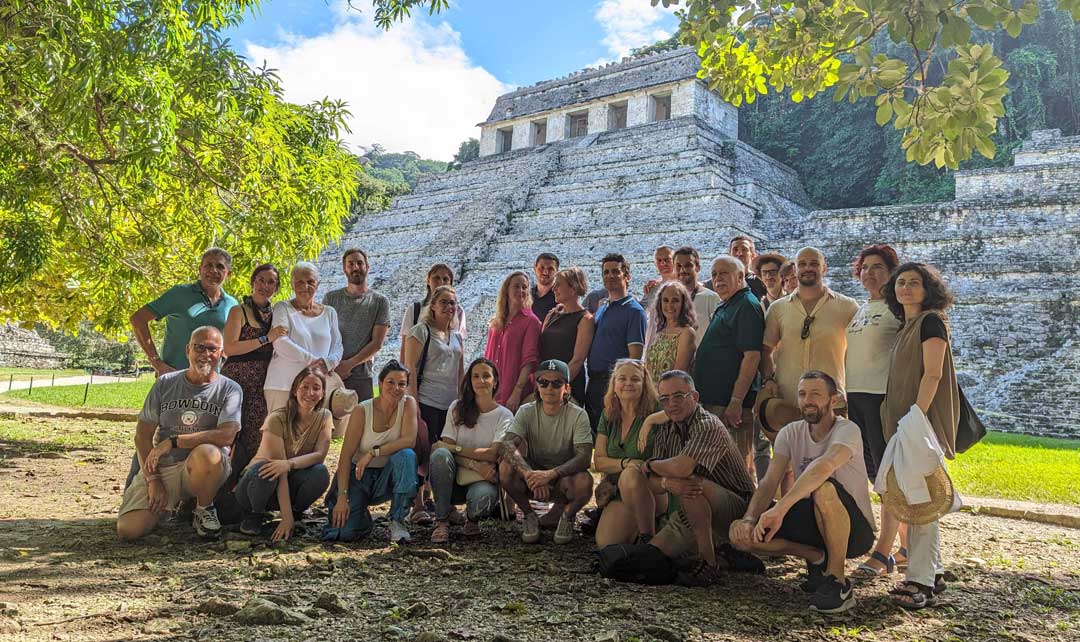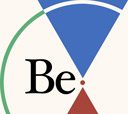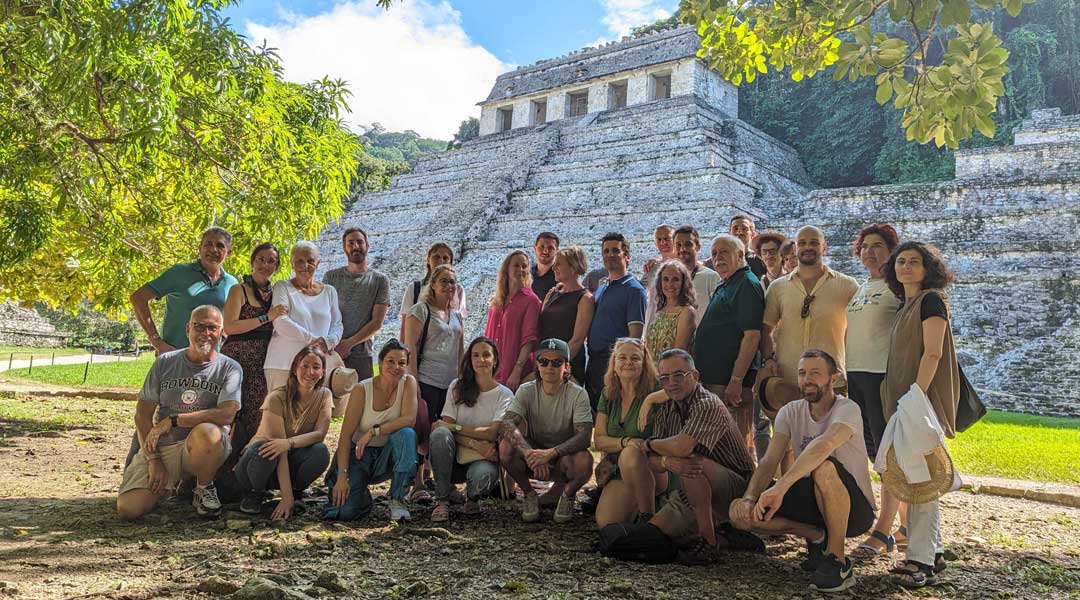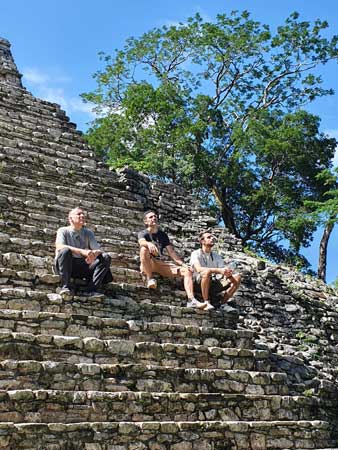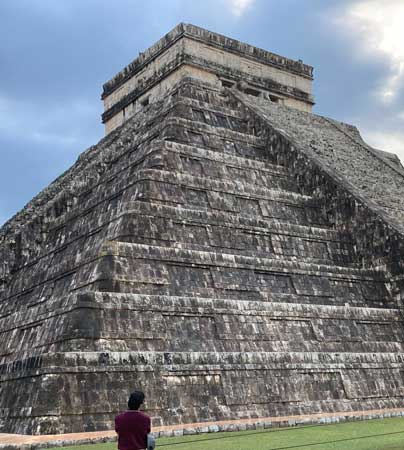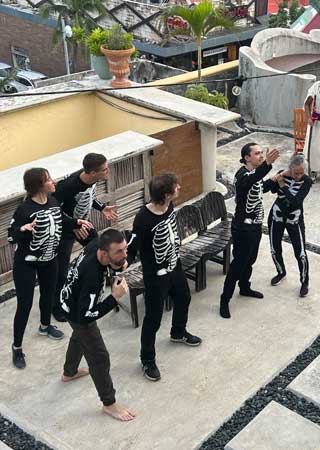If our progression in this work were linear, then every day would find us a little further along the path of self-knowledge than the day before. What we understood yesterday would be reliably ours and we would never fall back by forgetting our verifications. Each day our progress would be self-evident, encouraging us to climb to the summit of human development.
In reality, however, the experience of pursuing self-knowledge proves to be quite the opposite. Our bright and clear understanding of only an hour ago easily clouds over. If we can maintain an average progress of two steps forward one step back, we are doing well. More often, we find ourselves taking two steps back with every step forward. This is because our progression on the path of self-knowledge is not linear, but cyclical.
Students in Edzna, Yucatan
El Castillo | Chichen Itza
This fundamental truth ran as a thread throughout our visit to Mexico last week. The prehistoric people to civilize Mesoamerica some 10,000 years ago observed everything around them in a perpetual cycle. Nothing progressed in straight lines. The corn they planted emerged in due time as a shoot, matured into a plant, and yielded new corn that was in turn planted, repeating the cycle endlessly. Likewise, the sun set each evening in the west and rose the following morning in the east. The seasons, constellations, planets, moon, people, generations, civilizations—practically everything—cycled in a perpetual trajectory of disappearing and reappearing, or as they expressed it in their creation myth, The Popol Vuh, in a perpetual cycle of sowing and dawning.
This understanding certainly accounts for the pre-Columbian obsession with astronomy and the development of their elaborate calendar. Whoever understood the mysteries of time could understand—and perhaps foresee—the unfolding of everything. Such an understanding would be a great advantage in the face of the formidable laws that otherwise keep humans in vulnerable ignorance. Knowledge of the cycles of time might endow its possessor with the ability to foresee moments of opportunity, prepare for them, and bend time to their own advantage.
This ‘bending’ of time lies at the core of one of the episodes of the Popol Vuh which we enacted as a play during our gathering. Divinely-ordained twins confront the lords of the underworld so that the orderly creation of the world can properly unfold. The underworld lords are tricksters; the twins are naive. The twins fall for every trap and quickly meet their death. But even death cannot simply be an ending. Since nature has no straight lines, death must be the beginning of something else. The remains of the deceased twins seed a second generation of twins who learn from the experience of their ancestors and outwit their challengers.
Ultimately, the forces of light triumph over darkness in the very same way our self-knowledge triumphs over ignorance. We take two steps forward and one step back. In outlining the story of creation, the Popol Vuh lays out one of the fundamental laws here on earth. Progress cannot unfold linearly, but only cyclically. To ascend, each cycle must build on the experience of the previous one and bend it into a spiral. Those of us returning from the Mexico gathering must expect to graft the understandings we’ve gained onto our routine back at home, but only in accordance with this same fundamental law.
Good luck!
Students Enacting the Lords of the Underworld
